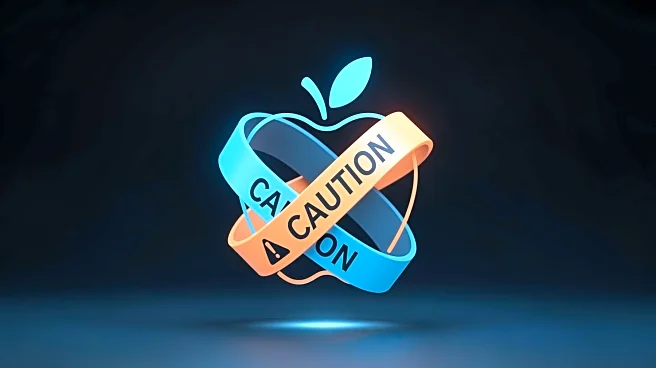What's Happening?
Starting in 2026, President Trump plans to increase the cost of H-1B visa applications to $100,000, a significant rise from the current fees under President Biden. This change is expected to reshape how U.S. companies approach hiring foreign talent, particularly in the tech industry. The H-1B visa program, established in 1990, allows U.S. employers to hire foreign workers in specialty occupations temporarily. The program has undergone various amendments to address economic needs and labor market changes. The new fee will apply to new applications starting in 2026, not to current visa holders or renewals. Key Trump adviser Stephen Miller is seen as the architect of this policy, which has drawn criticism from some of Trump's supporters, including Elon Musk and Vivek Ramaswamy, who advocate for admitting more foreign tech workers.
Why It's Important?
The increase in H-1B visa costs could have significant implications for the U.S. tech industry, which relies heavily on foreign talent to fill skill gaps in STEM fields. Companies like Amazon, Microsoft, and Alphabet are among the largest users of the H-1B program. The new fee could be particularly challenging for tech startups, where venture capital is crucial. Critics argue that the policy could shrink the U.S. labor force, leading to higher costs and inflation. The American Enterprise Institute projects that negative net migration could reduce GDP growth due to lower consumer spending and a smaller workforce. This policy shift may also lead to increased processing delays and a more hostile environment for H-1B holders.
What's Next?
Economists like Mark Zandi predict that Trump's immigration policies could lead to rising inflation, potentially reaching nearly 4% by early next year. The reduction in the immigrant workforce is expected to impact job creation, as immigrants account for a significant portion of U.S. job growth. Experts anticipate further restrictions and challenges for H-1B holders under Stephen Miller's guidance. The policy could also lead to legal challenges, as seen with Tesla's ongoing class action lawsuit regarding hiring practices favoring foreign visa holders.
Beyond the Headlines
The ethical and cultural dimensions of this policy change are significant, as it reflects a broader nativist approach to immigration under the Trump administration. The policy could exacerbate tensions between the U.S. and countries that supply tech talent, potentially affecting international relations. Long-term shifts in the U.S. labor market could occur, with a possible decrease in innovation and competitiveness in the global tech industry.









